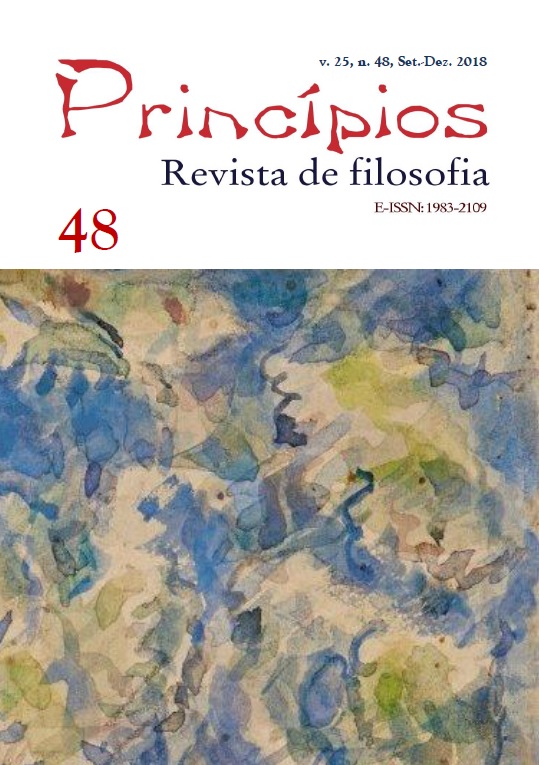Alienação e subjetivismo
a renúncia do amor renascentista pelo mundo
DOI :
https://doi.org/10.21680/1983-2109.2018v25n48ID14131Mots-clés :
Vita activa, Alienação do homem, Amor renascentista, Homens de ação.Résumé
Hannah Arendt, no Capítulo VI d’A condição humana, ao compreender a vita activa no contexto das transformações operadas pela modernidade, especialmente as que estão relacionadas à glorificação das ciências como uma tentativa de instaurar uma nova visão de mundo em que os assuntos do domínio público são aviltados, afirma que o amor renascentista pela Terra e pelo mundo foi a primeira vítima do processo de alienação do homem moderno. Na concepção da autora, a era moderna não apenas não deu importância ao esforço dos humanistas cívicos em prol da valorização da vita activa e da instauração de princípios cívicos que marcariam por séculos as demandas de instituição do político, mas concebeu outras condições que arrefeçaram o que vinha sendo construído pelos homens de ação do republicanismo renascentista. Neste texto, discutiremos o que significou o processo de alienação do homem na era moderna, quais suas implicações para o mundo público, e qual a relação que esse evento guarda com um modo de vida que havia sido gestado pelos homens de ação do Renascimento.
Téléchargements
Références
ALVES NETO, Rodrigo Ribeiro. Alienações do mundo: uma interpretação da obra de Hannah Arendt. São Paulo: Loyola, 2009.
ARENDT, Hannah. A conquista do espaço e a estatura humana. In: ARENDT, Hannah. Entre o passado e o futuro. Trad. Mauro W. Barbosa. São Paulo: Perspectiva, 2005. p. 325-344.
ARENDT, Hannah. A condição humana. Trad. Roberto Raposo. Rev. Adriano Correia. Rio de Janeiro: Forense Universitária, 2010.
GARIN, Eugênio. O homem renascentista. Lisboa: Presença, 1991.
GARIN, Eugênio. Ciência e vida civil no renascimento italiano. São Paulo: UNESP, 1996.
PASSOS, Fabio Abreu. A faculdade do pensamento em Hannah Arendt: implicações políticas. Rio de Janeiro: Lumen Juris, 2017.
POCOCK, J. C. A. Cidadania, historiografia e república. Coimbra: Almedina, 2013.
ROVIELLO, Anne-Marie. Senso comum e modernidade em Hannah Arendt. Lisboa: Instituto Piaget, 1997.
Téléchargements
Publié-e
Comment citer
Numéro
Rubrique
Licence
Autores mantêm os direitos autorais e concedem à revista o direito de primeira publicação, com o trabalho simultaneamente licenciado sob a Licença Creative Commons Attribution que permite o compartilhamento do trabalho com reconhecimento da autoria e publicação inicial nesta revista.
Termos da licença:
| Não Comercial (NC) | Os licenciados podem copiar, distribuir, exibir e executar a obra e fazer trabalhos derivados dela, desde que sejam para fins não comerciais. |
| Compartilha Igual (SA) | Os licenciados devem distribuir obras derivadas somente sob uma licença idêntica à que governa a obra original ou menos restritiva. |


 Português (Brasil)
Português (Brasil) English
English Español (España)
Español (España) Français (Canada)
Français (Canada)


